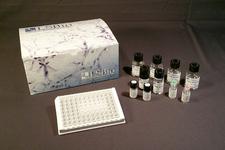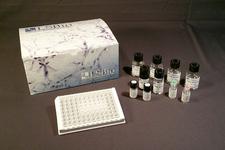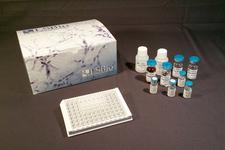order histories, retained contact details for faster checkout, review submissions, and special promotions.
Forgot password?
order histories, retained contact details for faster checkout, review submissions, and special promotions.
Locations
Orders Processing,
Shipping & Receiving,
Warehouse
2 Shaker Rd Suites
B001/B101
Shirley, MA 01464
Production Lab
Floor 6, Suite 620
20700 44th Avenue W
Lynnwood, WA 98036
Telephone Numbers
Tel: +1 (206) 374-1102
Fax: +1 (206) 577-4565
Contact Us
Additional Contact Details
order histories, retained contact details for faster checkout, review submissions, and special promotions.
Forgot password?
order histories, retained contact details for faster checkout, review submissions, and special promotions.
SIRT7 / Sirtuin 7
sirtuin 7
NAD-dependent protein deacetylase that specifically mediates deacetylation of histone H3 at 'Lys-18' (H3K18Ac). In contrast to other histone deacetylases, displays selectivity for a single histone mark, H3K18Ac, directly linked to control of gene expression. H3K18Ac is mainly present around the transcription start site of genes and has been linked to activation of nuclear hormone receptors. SIRT7 thereby acts as a transcription repressor. Moreover, H3K18 hypoacetylation has been reported as a marker of malignancy in various cancers and seems to maintain the transformed phenotype of cancer cells. These data suggest that SIRT7 may play a key role in oncogenic transformation by suppresses expression of tumor suppressor genes by locus-specific deacetylation of H3K18Ac at promoter regions. Also required to restore the transcription of ribosomal RNA (rRNA) at the exit from mitosis: promotes the association of RNA polymerase I with the rDNA promoter region and coding region. Stimulates transcription activity of the RNA polymerase I complex. May also deacetylate p53/TP53 and promotes cell survival, however such data need additional confirmation.
| Gene Name: | sirtuin 7 |
| Synonyms: | SIRT7, SIR2L7, Sirtuin type 7, SIR2-like protein 7, Sir2-related protein type 7, Sirtuin 7 |
| Target Sequences: | NM_016538 NP_057622.1 Q9NRC8 |








If you do not find the reagent or information you require, please contact Customer.Support@LSBio.com to inquire about additional products in development.









